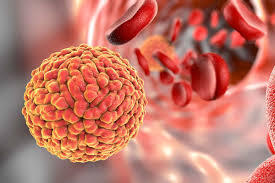Experts from the Ministry of Health and Family Welfare’s (MoHFW) National Centre for Vector Borne Diseases Control (NCVBDC) have chosen to concentrate on lowering viraemia and virus transmission in the vector in order to tackle the Zika virus disease threat in Maharashtra, particularly Pune city, officials said.
The NCVBDC’s senior regional director for Maharashtra, Goa, and Daman & Diu, Dr. Sarita Sakpal, declared, “All infected adult mosquitoes, including any larvae that may be virus carriers, will be eradicated.” In order to stop mosquitoes from spreading the Zika virus to humans, patients who are infected with the virus will be protected from mosquito bites.
Dr. Sakpal went on to say that if we adhere to this, which needs to be done religiously for 14 days, the current Zika virus spread will be stopped. Patients who have tested positive for the Zika virus will be instructed to use mats, coils, lotions, and other repellents that keep mosquitoes away. She also told them that in order to protect themselves from mosquito bites, they will be required to use bed nets, wear full-sleeve shirts, and full pants with socks.
“The infected mosquitoes will die as a result of containment measures, but new mosquito infections can spread the virus to humans.” Since the Zika-affected patients cannot be kept in isolation, they must live in an area free of mosquitoes. In the end, everyone needs to take personal preventive steps to ward off diseases carried by vectors.
Experts believe that a rigorous cycle to stop vertical transmission in the larvae and horizontal transmission from adult mosquitoes will help lessen the spread of the Zika virus. A hierarchy-based system that was created in rural areas is not strictly adhered to in the municipal corporation areas of Pune, Mumbai, Nashik, Kolhapur, and other places. They claimed that as a result, dengue and chikungunya, two vector-borne illnesses, are highly prevalent in these areas.
“The viraemia in the vector mosquitoes will be reduced if we can take control of adult mosquitoes and larvae laid by infected mosquitoes,” said a senior official from NCVBDC. We can halt active transmission of the Zika virus if we shield patients from mosquito bites, stopping the virus from infecting new individuals. Cases and transmission of the Zika virus can be greatly decreased.
The primary way that the Zika virus spreads is through the bite of an infected Aedes mosquito, specifically Aedes Albopictus, which is also responsible for spreading dengue and chikungunya. Up to 80% of people who contract the Zika virus either show no symptoms at all or only have mild symptoms like fever, rash, conjunctivitis, body aches, and joint pain. Of the 21 cases of Zika virus that Maharashtra has reported this year, 19 have been reported in the Pune district in less than a month.
The goal of the NCVBDC in India is to ensure that the national government’s guidelines and policies for the prevention and eradication of vector-borne illnesses are effectively implemented. Additionally, the specialists are working to create a strong system or micro-action plan to manage the dengue, chikungunya, and zika vector.
Experts from NCVBDC will train PMC employees.
Pune Municipal Corporation (PMC) insect control department and health department began surveillance and containment efforts after Pune city reported its first case of Zika virus infection on June 20.
Experts at NCVBDC, however, asserted that results can only come from appropriate efforts made in the appropriate directions.










